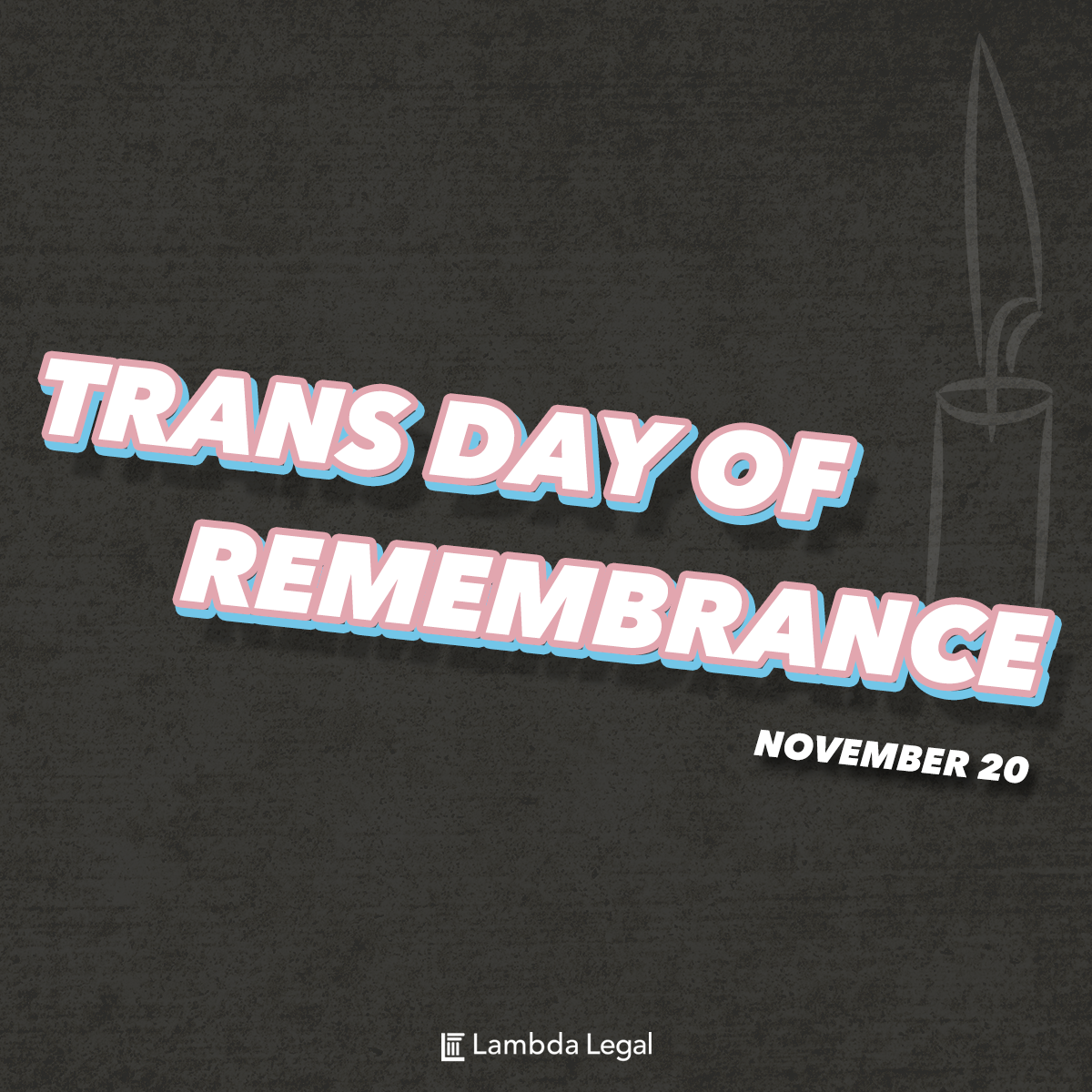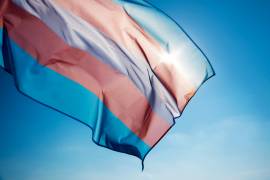by Avatara Smith-Carrington, 2019-2021 Tyron Garner Memorial Law Fellow (they/them/theirs) and Taylor Brown, Staff Attorney (she/her/hers)
This is part of our blog series written by Lambda Legal staff in honor of Transgender Awareness Week 2019.
Every year, TLGBQIA communities around the world observe Transgender Day of Remembrance (TDOR) honoring the memory of all the transgender people who have lost their lives to anti-transgender violence. But this day is not just about remembrance. It is a call to action to interrogate and dismantle oppressive systems that perpetuate this violence.
We lead up to this day with Transgender Awareness Week, a week-long elevation of the experiences, successes, and diversity of the transgender community.
2019 marked yet another deadly year for Black and Latinx transgender women, who once again comprise the majority of the lives cut short by anti-transgender violence. This year, we lost 22.
We honor the stolen lives of our community members, bringing each of them into this space:
Dana Martin, Jazzaline Ware, Ashanti Carmon, Claire Legato, Muhlaysia Booker, Michelle Washington, Paris Cameron, Chynal Lindsey, Chanel Scurlock, Zoe Spears, Brooklyn Lindsey, Denali Stuckey, Tracy Single, Bubba Walker, Kiki Fantroy, Jordan Cofer, Pebbles LaDime Doe, Bailey Reeves, Bee Love Slater, Jamagio Jamar Berryman, Itali Marlowe and Briana Hill.
The violence perpetrated against our community is fueled by many forms of oppression, including but not limited to racism, sexism, anti-transgender bias, classism and xenophobia. This violence is consistently inflamed and condoned by both dog whistles and overt action from the highest levels of government. Intersecting forms of oppression place Black transgender women and transgender women of color in the crosshairs of various forms of violence. It is thus crucial that we center and amplify their experiences and voices in these conversations.
When our work centers those who are the most vulnerable, we can create a more just, equitable and safe community for everyone.
We cannot only mourn those we’ve lost without making change. This week, we invite you to consider the issues and commit to contributing positively to the wellbeing and livelihood of all transgender and gender non-conforming (TGNC) people.





